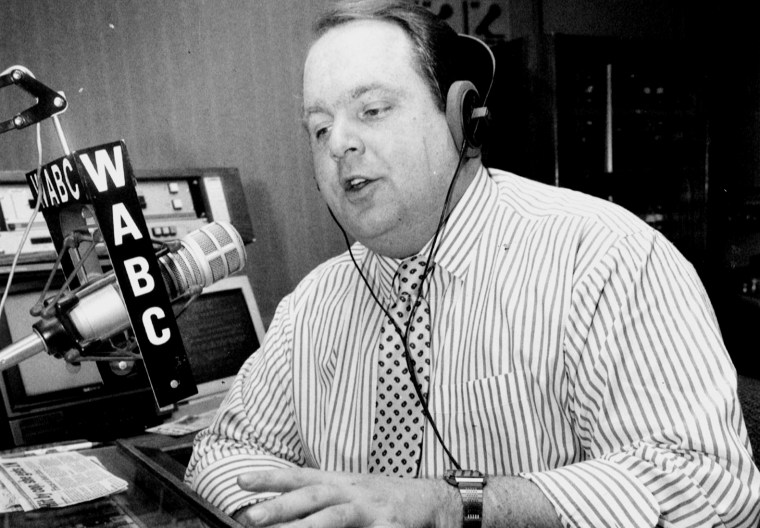Rush Limbaugh, the brash and provocative talk-radio giant who died Wednesday at 70, was one of the most influential figures in American conservatism and a leader in the smash-mouth culture wars that turned ideological differences into bitter personal vitriol.
On the right, Limbaugh will be sanctified as a hero, a master of shock radio and a tireless champion of conservative values. On the left, he will be remembered as a bully and a villain who used character insults to attack liberals and progressives, women and minorities, and who was an original trafficker in unfounded but powerful conspiracy theories.
Both sides are likely to agree on at least one thing: By turning conservative angst and anger into a national movement, Limbaugh helped lay the foundation for Fox News and then the presidency of Donald Trump. Trump in turn awarded Limbaugh the Presidential Medal of Freedom.
"Rush was a giant in radio broadcasting," said Howard Polskin, who tracks right-wing media outlets on TheRighting.com. "He showed by the massive audiences he garnered that there was a business there, which was important and spawned a lot of imitators."
Those imitators included Sean Hannity, Laura Ingraham and Glenn Beck, all of whom would go on to find a home on Fox News, which itself became a home for right-wing talking points, attacks on liberals and, over the last half decade, adamant support of Trump.
In a sign of Limbaugh's influence, Trump called Fox News on Wednesday — the first time he had done so since leaving the White House — to praise the late radio show host.
"He was a fantastic man, a fantastic talent," Trump said. "People, whether they loved him or not, they respected him."
But that respect was hardly universal. President Joe Biden last year said Limbaugh had "done as much as Trump himself to divide our nation." Rep. Alexandria Ocasio-Cortez, D-N.Y., called him a "violent racist."
What is indisputable, however, was that Limbaugh mastered the power of his medium to gain extraordinary influence over American politics and Republican politicians, some of whom feared that criticism from him could cost them their seat in office.
After four years in local radio in Sacramento, Limbaugh launched "The Rush Limbaugh Show" to national syndication in 1988. His staunch defense of Reaganism and his blistering attacks on the left gave him instant popularity among conservatives. Three decades later, Limbaugh commanded a monthly audience of more than 20 million listeners across more than 650 stations.
In that time, Limbaugh became famous for attacking myriad targets: immigrants, Muslims, feminists and environmentalists. He mimicked Michael J. Fox's Parkinson's disease, promoted the false claim that President Barack Obama wasn't born in the U.S. and thus couldn't be president, and spread deep-state conspiracy theories. Most recently, he became known for defending Trump, dismissing the risks of coronavirus and casting doubt on the integrity of the 2020 election.
Many of those attacks and conspiracies would be advanced by Trump, whom Limbaugh vehemently supported even as Trump's own celebrity among conservatives eclipsed that of the radio host himself.
Limbaugh also faced a slew of personal challenges: In 2001, he contracted an autoimmune inner ear disease that resulted in hearing loss. In 2003, he revealed he would be seeking treatment for an addiction to pain medication. In 2020, he announced he had advanced lung cancer.
On Wednesday, his wife announced the news of his death to his listeners: "I, like you, very much wish Rush was behind this golden microphone right now," she said. "It is with profound sadness I must share with you directly that our beloved Rush, my wonderful husband, passed away this morning due to complications from lung cancer."
Limbaugh's legacy lives on, however, in talk radio, in Fox News and its online imitators, and in the 74 million Americans who voted for Trump in 2020 and remain a potent and powerful force in American politics.

